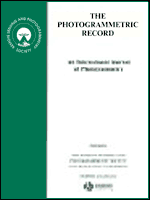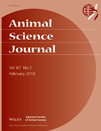 Recently, Robert Geller of the University of Tokyo brought an interesting issue to our attention. In following a particular paper that had been flagged with concerns on PubPeer, he saw that the journal had eventually retracted it. Even though the journal was sold under a subscription-based model, it made the retraction notice available outside the paywall– per the recommendations of the Committee on Publication Ethics (COPE).
Recently, Robert Geller of the University of Tokyo brought an interesting issue to our attention. In following a particular paper that had been flagged with concerns on PubPeer, he saw that the journal had eventually retracted it. Even though the journal was sold under a subscription-based model, it made the retraction notice available outside the paywall– per the recommendations of the Committee on Publication Ethics (COPE).
The paper itself now included a link to the retraction notice – also recommended by COPE – but the retracted article remained behind the paywall. In other words, to read the retracted paper, non-subscribers would have to pay 3300 Yen (about $30).
Geller contacted us, concerned that the journal was continuing to profit from a retracted paper.
It’s a question we’ve never considered before: Continue reading Poll: Should retracted papers be made available for free?




